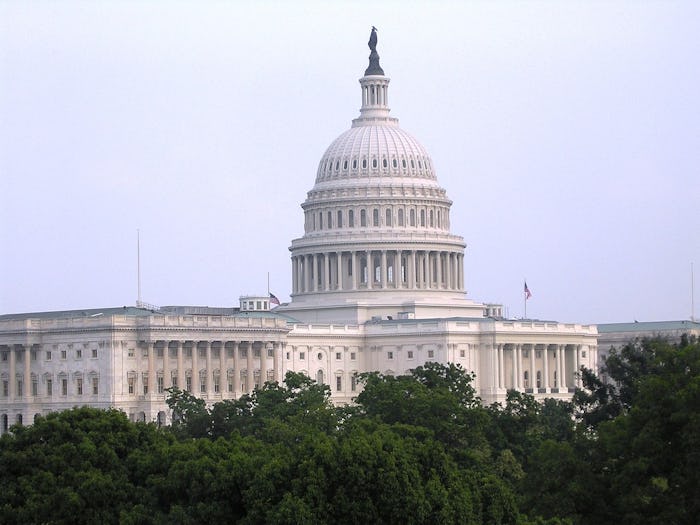D.C. Passes Paid Leave Policy That Gives Parents More Time With Their Children
Here's a bit of bright news for working families. On Tuesday, in Washington, D.C., the D.C. Council voted to pass a paid leave policy that gives parents more time with their children. If Mayor Muriel Bowser signs the bill, D.C. will have one of the most generous paid leave policies in the entire country.
The new policy provides up to eight weeks of paid paternity and maternity leave, and it covers newborns and adopted children. (Compare this to the paid leave plan proposed by Ivanka and Donald Trump, which would give six weeks of leave only to mothers of newborns, and nothing to new fathers.) According to the D.C. plan, parents on leave can make up to 90 percent of their salary, capped at $1,000 a week. The money for all that wonderful leave will come from a government-managed fund, made up of money gained by a 0.62 percent increase in payroll taxes for all businesses.
The employer tax has caused some controversy, provoking opposition from some businesses, the D.C. Chamber of Commerce, and the mayor herself, although it's based on the model used successfully in California, New York, and New Jersey, as well as in many other countries throughout the world.
The United States is one of the only countries in the world that does not provide paid maternity leave. (Compare us with Great Britain, which offers a whopping 52 weeks of leave, most of which is paid, and seems to be doing just fine, except for the whole Brexit thing.) Paid leave policies have been shown to have positive effects both on the workforce and on new families, but the federal government's lack of action on the issue has led progressive states (and now, a district!) to strike out on their own to support working parents.
If the new policy goes into effect, it will help more than half a million workers, and not just new parents. It also provides up to six weeks of leave for workers to care for a sick relative, and up to two weeks of leave for workers' own illnesses. However, it still has to clear a few hurdles before it becomes law. Most pressingly, Bowser has to sign the bill, and she has spoken out publicly against aspects of it, like that it might create more expensive bureaucracy, and that tricky, tricky payroll tax.
Still, it has the support of around 80 percent of District residents, and passed the vote on Tuesday by a nine to four margin. Things are looking up for parents in the capital!
